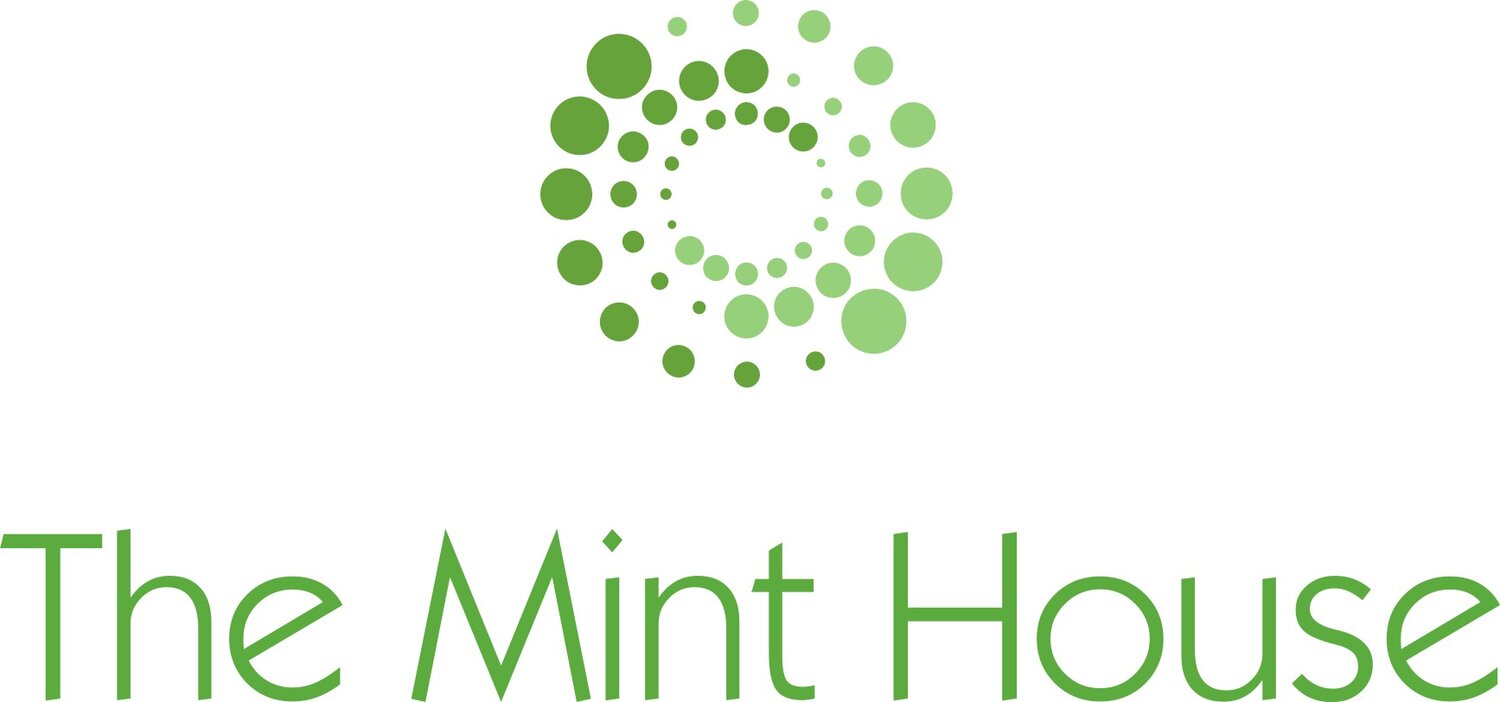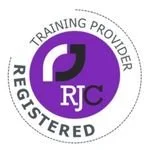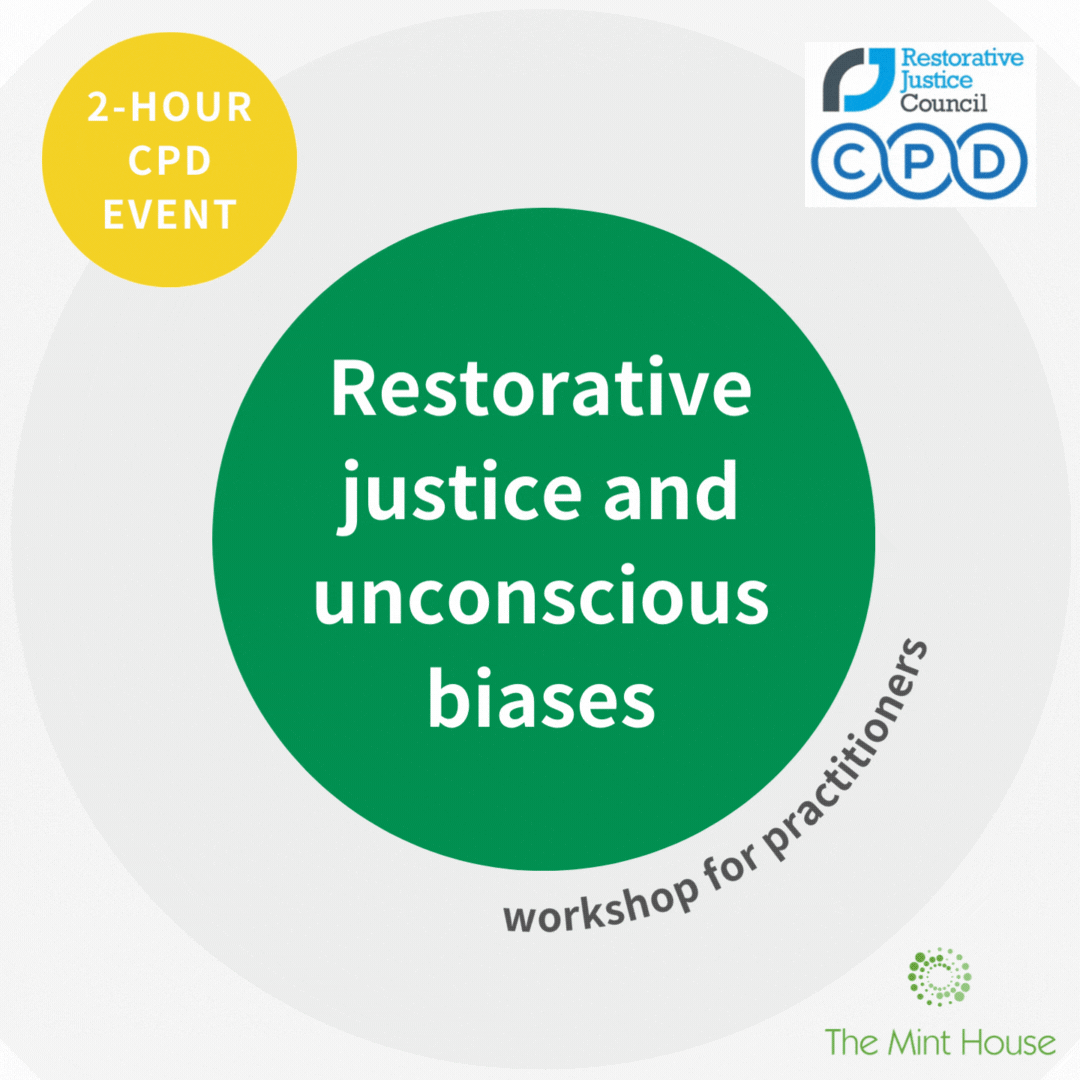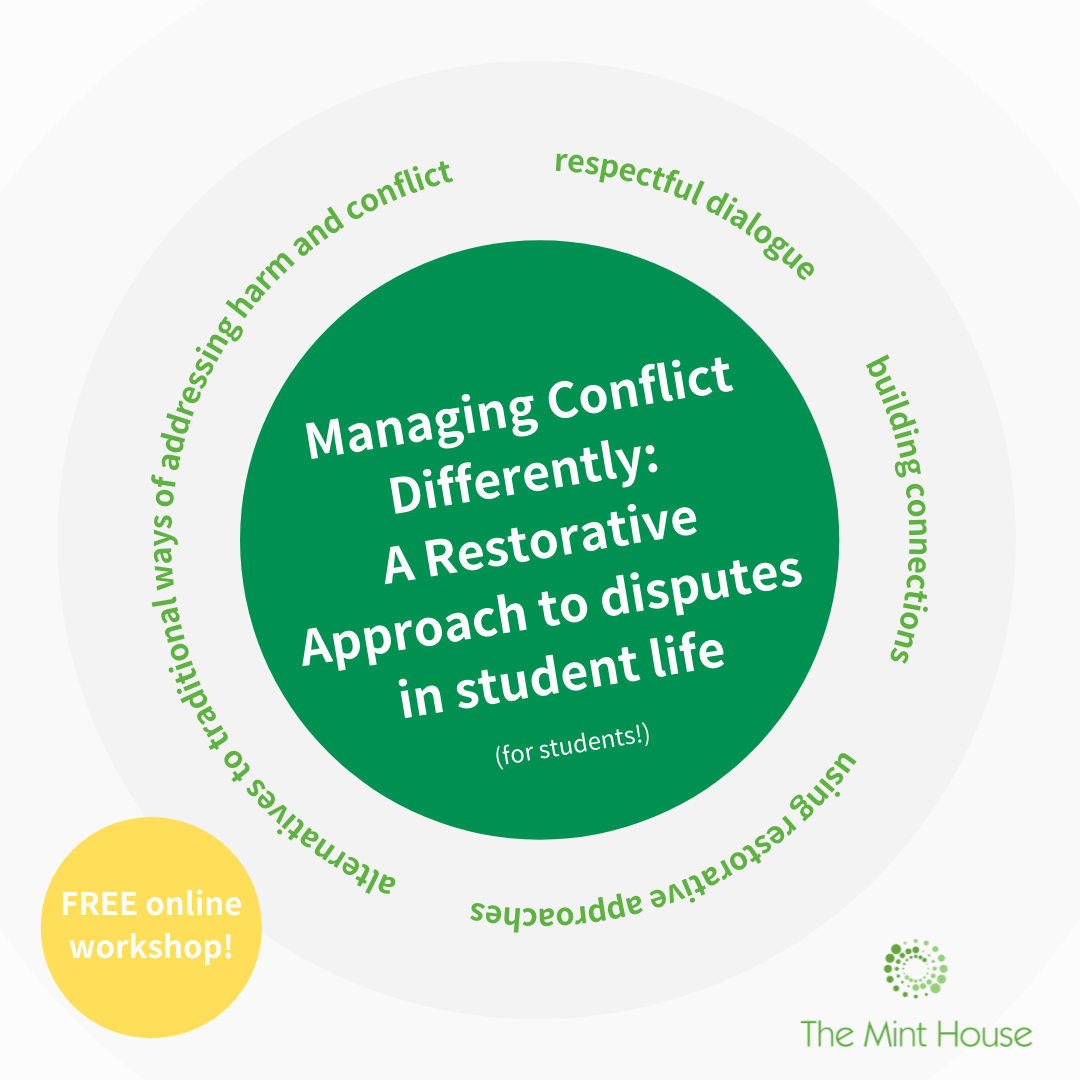Workshops & Training
For upcoming events and workshops please see our Events listings. At present, we do not have any training courses available to the public.
Please contact us if you are interested in training for your team or community group and we can explore training options with you.
The Mint House has been awarded registered training provider status with the Restorative Justice Council.
You can find our Access Statement on our Policies page.
Previous Workshops and training held at The Mint House
Restorative justice and unconscious biases (CPD Workshop)
Tuesday 25 February 2025
10:00 am - 12:00 pm (GMT)
Online
A 2-hour CPD training event designed to help practitioners consider the underlying heuristic biases which may impact restorative work.
This event has RJC CPD Approval.
To err is human… We are delighted to offer a 2-hour CPD workshop exploring unconscious heuristic biases which have potential to impact restorative processes. In this reflective and interactive space, we will explore how these unconscious processes influence our decision-making processes and what we can do to mitigate their impacts.
We will:
Help practitioners understand why heuristic biases exist.
Share how heuristic biases influence our decision-making processes.
Consider together how heuristic biases may impact on restorative processes, including safety and non-discriminatory practice.
Explore ways to mitigate the impact of heuristic biases on restorative work.
For more details see: Restorative justice and unconscious biases (CPD workshop)
Sharing tools to support restorative conversations
This two-hour knowledge sharing and learning event will provide an opportunity to reflect on restorative conversation skills, learn about creative activities for exploring restorative themes, and share ideas with others. It is open to anyone wanting to add to their personal toolkit of resources.
For more details see: https://www.minthouseoxford.co.uk/events/2022/9/27/conversation-tools
Restorative Practice in Student Settings: An Introduction (for University Staff)
This one-day interactive online course is for college and University staff with roles in student support, discipline, welfare and well-being.
The course will introduce key concepts of restorative practice and explore their application in student contexts including in community building, addressing harm and conflict and creating safe spaces where individuals can speak openly and learn from the experiences of others.
Course aims:
Understand the principles and values of restorative practice, the philosophy and mindset that underpin the approach and how restorative practice differs from other ways of addressing harm and conflict.
Understand restorative language, themes and processes.
Introduce and practice restorative skills.
Reflect on how restorative practice can help address key challenges in student life, for example by supporting respectful dialogue, addressing everyday conflicts in student housing or addressing issues such as racism, cancel culture and rape culture.
Reflect on the relationship between restorative practice and existing disciplinary procedures and the opportunities and challenges of integrating restorative practice with existing mechanisms.
The course will be delivered over Zoom from 9:30am-3:30pm, including 60 minutes break time and 30 minutes’ offline study.
Managing Conflict Differently: A Restorative Approach to disputes in student life
This FREE two-hour interactive online workshop for university students (delivered over Zoom) will introduce the principles and values of restorative practice and look at what these can mean in managing conflicts in student settings and in creating safe spaces where individuals can speak openly and learn from the personal experiences of others. The workshop will be of particular interest to students with peer support or leadership roles, including roles in equalities and/or student welfare and wellbeing.
Workshop aims:
Understand the principles of restorative practice and how restorative practice differs from traditional ways of addressing harm and conflict.
Introduce restorative language and values and explore how these might support us to build connections with others.
Reflect on how restorative practice is relevant to student life, its role in supporting respectful dialogue and addressing conflicts in student settings.
Consider next steps – where do we go from here?
Living, Working & Playing with our Teenagers: A Restorative Approach
This one day workshop will explore the particular challenges, joys, and dynamics of working and living in a restorative way with young people in their teens. The values, language, and principles of restorative approaches contribute to building and maintaining positive and mutually respectful relationships. They offer more effective approaches to discipline and boundary setting. At a time when teenagers are going through so many changes our interactions with them are critical to the development of their identities and interests and potentially highly rewarding to our relationships with them.
Led by Katherine Stoessel who has worked in the field of restorative practice for over 20 years in the UK, the USA, West Africa, the Balkans and Eastern Europe and she is a regular facilitator and trainer for the Thames Valley Restorative Justice Service. She is privileged to work with these powerful and meaningful processes and they underpin her deep commitment to restorative approaches and the profound difference they can make to people's lives.
Workshop cost is £50 per person, (some bursaries are also available) - for further information email RP@minthhouseoxford.co.uk
Introduction to Restorative Practice
This workshop increases understanding of conflict and wrongdoing from a restorative perspective and explores the principles and values underpinning a restorative approach.
Designed for professionals in the legal field, case referral managers, supervisors of restorative practitioners, and anyone supporting or working alongside restorative practitioners.
At the end of the day you will:
Understand the difference regarding discipline and punishment between traditional practices and restorative approaches
Understand the principles and values underpinning the theory and practice of restorative approaches
Have built awareness of the importance of restorative language
Have explored how restorative practice can be applied in their area of work
Have an increased understanding of how to manage and support restorative practitioners
Led by Katherine Stoessel who has worked in the field of restorative practice for over 20 years in the UK, the USA, West Africa, the Balkans and Eastern Europe and she is a regular facilitator and trainer for the Thames Valley Restorative Justice Service. She is privileged to work with these powerful and meaningful processes and they underpin her deep commitment to restorative approaches and the profound difference they can make to people's lives.
Lunch-time talk: ‘Building Respectful Families: A Restorative Approach to Child on Parent Violence’
Colette Morgan works for SAFE! as the Child on Parent Violence Project Development Manager. Sadly, Child-on-Parent violence is on the rise and this fascinating talk will show us how SAFE! tackles this problem and works with families to cultivate respectful family relationships, for the benefit of all society.
We will even provide you with a free sandwich and a cuppa.





